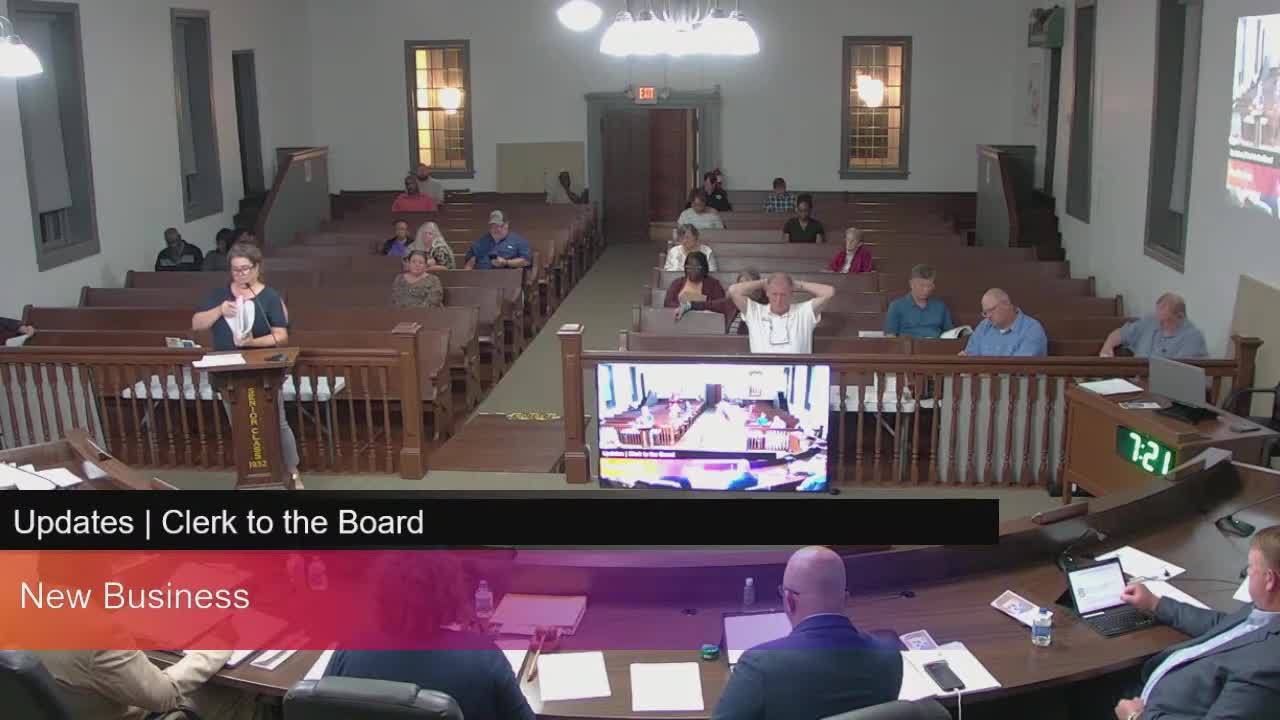Board adopts procedures for advisory-board appointments, approves a set of appointments and reappointment to jury commission
Get AI-powered insights, summaries, and transcripts
Subscribe
Summary
The Gates County Board of Commissioners approved a new policy governing appointments to county advisory boards and commissions and appointed several citizens to advisory bodies; the board reappointed Fannie Langston to the jury commission by unanimous vote.
The Gates County Board of Commissioners approved a new policy and procedure for appointing citizens to county boards, commissions and committees and took several appointments during its Oct. 15 meeting.
Policy and process Renee Draper, clerk to the board, presented a draft policy that outlines recruitment, qualifications, term lengths, attendance expectations and reappointment criteria for county advisory boards. The policy also sets a consistent application retention period and guidance for selecting appointees. Commissioners discussed whether individual advisory boards should set their own membership caps; the board approved the general policy subject to later, board-adopted rules for each specific advisory body.
Appointments and reappointments - The board unanimously reappointed Fannie Langston to the county jury commission (term start and length per statute). Draper said Langston has served on the jury commission since February 2009 and that the clerk of superior court had asked for a timely reappointment to allow jury rolls to be prepared for 2026. - The board unanimously approved several applicants to advisory boards: Miss Cosby and Evan Wynne for the Opioid Prevention and Intervention Committee; Kirsten Black and Connie Barnes for the Animal Services Advisory Board; and others included in the meeting packet. One applicant for the Merchant Commerce Center Committee was present but had a schedule conflict and will be considered by the board.
Why it matters: The new policy creates a consistent process for recruiting and vetting volunteers and directs that each advisory board adopt tailored rules of procedure. The jury commission role is time-sensitive because the clerk of superior court uses commission membership to assemble jury rolls and calendars.
Next steps Commissioners directed staff to draft individual rules of procedure for each advisory board and to return the rules for formal adoption. Several commissioners also asked staff to review existing boards for overlap and to consider consolidating bodies with duplicative functions.
Ending: The policy passed by a 4–1 vote; the appointment and reappointment actions were unanimous. The board tabled further action on some proposed advisory-board resolutions to allow staff and commissioners time to evaluate overlaps and board missions.
